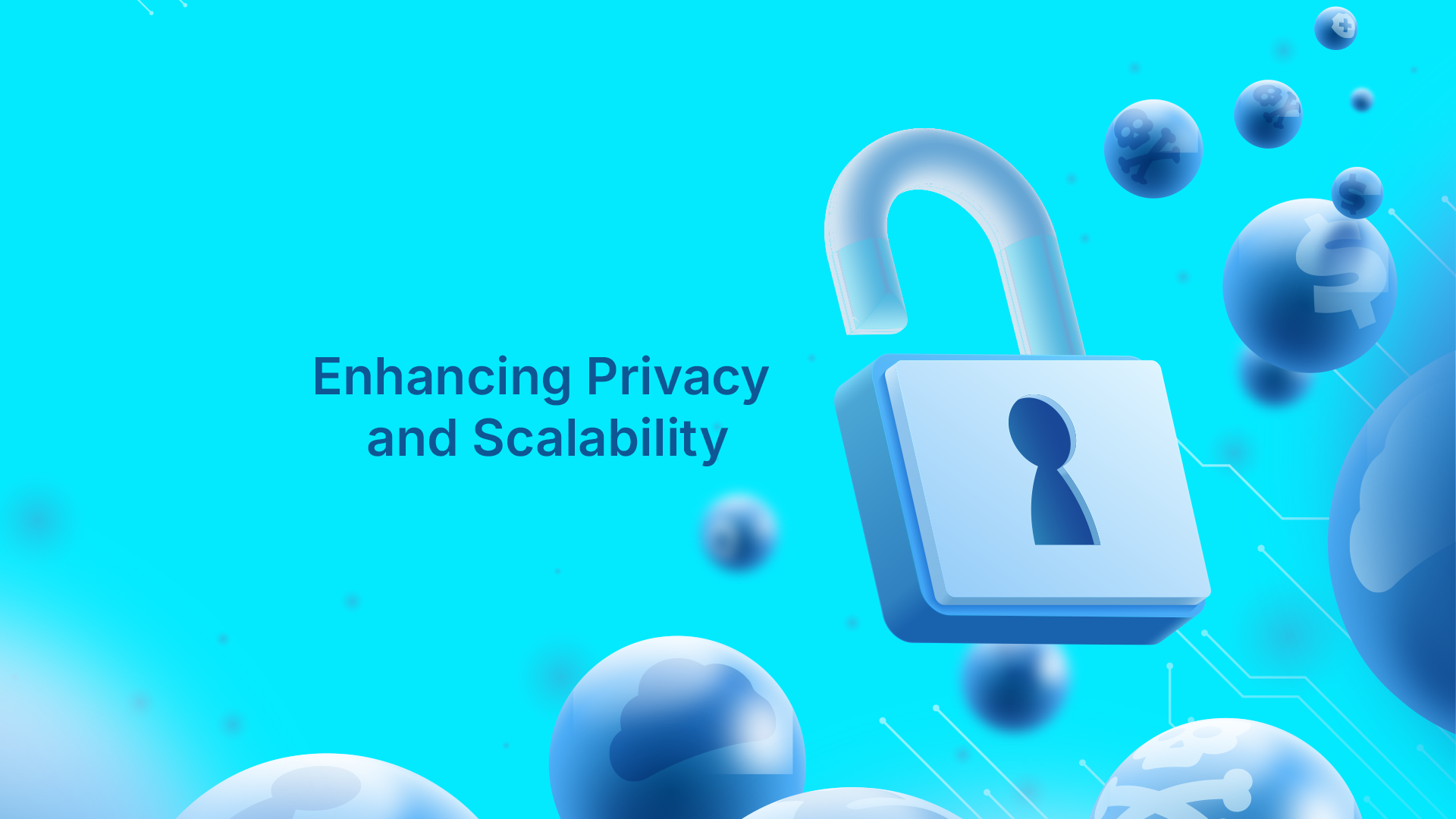
Zero-Knowledge Proofs: Enhancing Privacy and Scalability
- Why Zero-Knowledge Proofs Matter
- The Core Principles of Zero-Knowledge Proofs
- Types of Zero-Knowledge Proofs
- Interactive Zero-Knowledge Proofs
- Non-Interactive Zero-Knowledge Proofs
- Applications of Zero-Knowledge Proofs in Modern Technology
- Blockchain and Cryptocurrencies
- Data Privacy in Healthcare and Finance
- Digital Identity Verification
- Voting Systems and Secure Elections
- How ZKPs Enhance Privacy in Blockchain Technology
- Scalability Challenges in Blockchain and How ZKPs Address Them
- Security Benefits of Zero-Knowledge Proofs
- Implementing Zero-Knowledge Proofs: Challenges and Considerations
- The Future of Zero-Knowledge Proofs in Web3 and Beyond
- ZKP Protocols: A Deeper Look at SNARKs and STARKs
- SNARKs (Succinct Non-Interactive Arguments of Knowledge)
- STARKs (Scalable Transparent Arguments of Knowledge)
- Security and Efficiency Comparisons
- Limitations of Zero-Knowledge Proofs
- Zero-Knowledge Proofs and Regulatory Compliance
- Potential Risks and Ethical Concerns of Zero-Knowledge Proofs
- Conclusion

In the digital age, where data security and privacy are paramount, zero-knowledge proofs (ZKPs) are emerging as a revolutionary technology. ZKPs allow one party (the prover) to confirm the truth of a statement to another party (the verifier) without revealing any additional information. Originally conceptualized in the 1980s, ZKPs have evolved to offer new dimensions of privacy and scalability in technology fields like blockchain, digital finance, and secure communications. By facilitating private, secure transactions without sharing sensitive data, ZKPs promise to reshape the digital privacy landscape.
Why Zero-Knowledge Proofs Matter
As our reliance on digital interactions grows, the need to safeguard personal information has intensified. While traditional encryption methods protect data from unauthorized access, they don't always prevent the need to reveal information to verify it. Zero-knowledge proofs change this by allowing verification without disclosure, thus enhancing privacy while ensuring security. ZKPs address growing concerns around data breaches, identity theft, and unauthorized surveillance, particularly within industries handling sensitive information, such as finance, healthcare, and government.
The Core Principles of Zero-Knowledge Proofs
Zero-knowledge proofs operate on three foundational principles:
- Completeness – If the statement is true, an honest prover can convince an honest verifier.
- Soundness – If the statement is false, no dishonest prover can convince an honest verifier that it’s true.
- Zero-Knowledge – The verifier gains no knowledge about the underlying data or the statement beyond its validity.
These principles ensure ZKPs can be trusted, giving both provers and verifiers confidence in the security and integrity of the process.
Types of Zero-Knowledge Proofs
Zero-knowledge proofs can be broadly categorized into two types: interactive and non-interactive.
Interactive Zero-Knowledge Proofs
In interactive ZKPs, the prover and verifier engage in a series of back-and-forth interactions. Each step provides the verifier with information that cumulatively builds confidence in the truth of the prover's statement.
Non-Interactive Zero-Knowledge Proofs
Non-interactive proofs require no back-and-forth. Instead, the prover submits a single, verifiable statement, which the verifier can validate independently. Non-interactive ZKPs, such as SNARKs and STARKs, are ideal for applications requiring fast and low-bandwidth verification.
SNARKs (Succinct Non-Interactive Arguments of Knowledge)
SNARKs are a type of non-interactive ZKP that are compact and computationally efficient. They are used extensively in blockchains due to their small size and quick verification time.
STARKs (Scalable Transparent Arguments of Knowledge)
STARKs, unlike SNARKs, don't require trusted setup, making them more transparent and scalable. Though they require more computing power than SNARKs, STARKs are becoming a preferred choice in blockchain applications because they support larger, more complex proofs.
Applications of Zero-Knowledge Proofs in Modern Technology
ZKPs are increasingly used across sectors where privacy and security are paramount.
Blockchain and Cryptocurrencies
In blockchain, ZKPs help protect user privacy and ensure transaction security without revealing information. Cryptocurrencies like Zcash use ZKPs to enable fully private transactions.
Data Privacy in Healthcare and Finance
Healthcare and financial services often handle highly sensitive data. By using ZKPs, these sectors can validate claims (e.g., patient identity, creditworthiness) without exposing any underlying data, safeguarding both compliance and privacy.
Digital Identity Verification
ZKPs offer secure, privacy-preserving solutions for identity verification. For example, proving age without disclosing birth date or other personal details, which is particularly useful in areas like age-restricted online services.
Voting Systems and Secure Elections
ZKPs could revolutionize digital voting by ensuring the authenticity and privacy of votes. Voters could prove they voted without revealing their vote choice, preserving the integrity of democratic processes.
How ZKPs Enhance Privacy in Blockchain Technology
Blockchain’s transparent nature is a double-edged sword, as every transaction is visible on a public ledger. ZKPs address this by encrypting transactions, enabling confidentiality without sacrificing security. For example, Zcash’s zk-SNARKs technology hides transaction details while confirming the validity of each transaction, preserving privacy in an inherently transparent environment. This technology could have broad implications for financial privacy and digital asset protection.
Scalability Challenges in Blockchain and How ZKPs Address Them
Blockchain scalability is a major hurdle for mass adoption. Traditional blockchains require every node to process and store each transaction, resulting in significant data redundancy. ZKPs allow “proofs” of transactions to be validated without requiring nodes to hold full transaction details, which minimizes storage and improves efficiency.
Security Benefits of Zero-Knowledge Proofs
Security is a primary strength of ZKPs, offering protection against unauthorized access by verifying information without exposing underlying data. This feature is invaluable in environments where fraud is a concern, as ZKPs ensure parties are only provided with the minimum required information to verify transactions.
Implementing Zero-Knowledge Proofs: Challenges and Considerations
While zero-knowledge proofs offer immense benefits, implementing them comes with its own set of challenges. For one, ZKPs often require intensive computational resources, which can strain network and storage capabilities. This is especially true for complex proofs that involve large datasets or high transaction volumes, making the integration of ZKPs resource-heavy and sometimes costly.
Another challenge lies in balancing privacy and performance. As zero-knowledge proof algorithms become more complex, they can slow down the verification process, leading to latency issues. This trade-off between speed and security is a significant consideration, particularly in fields like financial services or blockchain, where rapid transaction processing is critical. Developers and businesses must carefully evaluate these factors to ensure that the use of ZKPs doesn’t compromise user experience or system efficiency.
The Future of Zero-Knowledge Proofs in Web3 and Beyond
As Web3 continues to gain traction, ZKPs are expected to play a fundamental role in shaping this decentralized digital landscape. Zero-knowledge proofs enable users to interact within Web3 ecosystems without exposing sensitive information, creating a more secure and private user experience. Decentralized applications (dApps) can incorporate ZKPs to safeguard user data and assets while maintaining transparency in smart contracts and transactions.
The rise of decentralized finance (DeFi) and digital identity solutions also highlights the potential of ZKPs. By enabling anonymous yet verifiable transactions, ZKPs can boost DeFi adoption by addressing privacy and compliance concerns. As ZKPs evolve and become more efficient, their integration with Web3 tools will drive the development of more user-friendly and secure decentralized applications.
ZKP Protocols: A Deeper Look at SNARKs and STARKs
In the realm of zero-knowledge proofs, SNARKs and STARKs are two prominent protocols, each with unique features and applications.
SNARKs (Succinct Non-Interactive Arguments of Knowledge)
SNARKs offer succinctness, meaning they create very compact proofs that require minimal data transmission. This compact size makes SNARKs ideal for applications where storage and bandwidth efficiency are paramount, such as in blockchain. However, one limitation is that SNARKs require a “trusted setup” phase, which introduces a slight risk if the setup is compromised.
STARKs (Scalable Transparent Arguments of Knowledge)
STARKs, in contrast, are transparent and don’t rely on a trusted setup, making them more secure in environments where users seek complete transparency. Additionally, STARKs are better suited for scalability as they can handle more complex proofs and larger datasets. The trade-off, however, is that STARKs generally require more computation and resources than SNARKs, which can impact performance in some cases.
Security and Efficiency Comparisons
While both SNARKs and STARKs provide a high level of security, the choice between them often depends on the specific application needs. SNARKs are efficient and well-suited for smaller-scale operations, while STARKs are preferred for projects where scalability and transparency outweigh computational concerns. Understanding these differences is crucial for developers when selecting the appropriate ZKP protocol for their applications.
Limitations of Zero-Knowledge Proofs
Despite their strengths, zero-knowledge proofs still face certain limitations that impact their widespread adoption.
- Computational Overhead: ZKPs often require significant processing power, which can be challenging for devices with limited resources. This can lead to slower transaction speeds and increased energy consumption.
- Complexity in Implementation: Creating a ZKP protocol requires a high level of technical expertise, which limits accessibility for smaller organizations or individual developers. Without proper implementation, ZKPs may introduce security vulnerabilities.
- Verification Times: While ZKPs are efficient for verification in many cases, larger proofs or complex statements can extend verification times, making ZKPs less suitable for real-time applications.
- Cost of Computation: The resource-intensive nature of ZKPs can drive up operational costs, particularly for organizations handling high volumes of proofs. This cost factor can limit ZKP usage for certain applications.
Zero-Knowledge Proofs and Regulatory Compliance
One of the standout features of zero-knowledge proofs is their ability to support regulatory compliance, particularly in privacy-focused industries. With privacy regulations like the General Data Protection Regulation (GDPR) and California Consumer Privacy Act (CCPA) in place, companies are required to protect personal data and minimize information exposure. ZKPs enable organizations to verify necessary data points without revealing sensitive information, ensuring compliance with these stringent regulations.
By allowing companies to authenticate information (such as user age or location) without storing personal identifiers, ZKPs reduce the risk of data breaches and uphold user privacy rights. This compliance factor is particularly valuable in finance, healthcare, and government services, where privacy regulations are both rigorous and continuously evolving.
Potential Risks and Ethical Concerns of Zero-Knowledge Proofs
While ZKPs provide an unprecedented level of privacy, they also introduce certain ethical considerations.
- Risk of Concealing Illegal Activities: Because ZKPs allow for anonymous verifications, they can potentially be exploited to conceal illicit activities, such as money laundering or tax evasion. This poses a significant challenge for regulators and law enforcement agencies tasked with monitoring illegal activities.
- Privacy vs. Accountability: The increased privacy afforded by ZKPs raises ethical questions about accountability, especially in financial and governmental sectors. Balancing the right to privacy with the need for transparency is crucial to ensuring that ZKPs are not misused.
- Complexity and Accessibility: The technical complexity of ZKPs limits access to this technology. This can lead to a scenario where only large corporations or technologically advanced organizations can leverage ZKPs, creating disparities in data privacy protection.
- Long-Term Implications: As ZKPs become more prevalent, the ethical boundaries around data privacy, security, and transparency will likely need to be reassessed. Policymakers and developers will have to work together to establish guidelines that prevent misuse while supporting user rights.
Conclusion
Zero-knowledge proofs represent a groundbreaking approach to data privacy and security, enabling proof of information without disclosure. By enhancing privacy and scalability, ZKPs offer promising applications across diverse sectors such as blockchain, finance, healthcare, and government. With protocols like SNARKs and STARKs, organizations can choose from a variety of ZKP options based on their specific needs for security, efficiency, and scalability.
Despite certain challenges, including computational demands and ethical considerations, ZKPs are well-positioned to drive the future of privacy-centric technologies. As we transition further into the decentralized Web3 era, ZKPs will continue to play a critical role in shaping a secure and transparent digital world.
